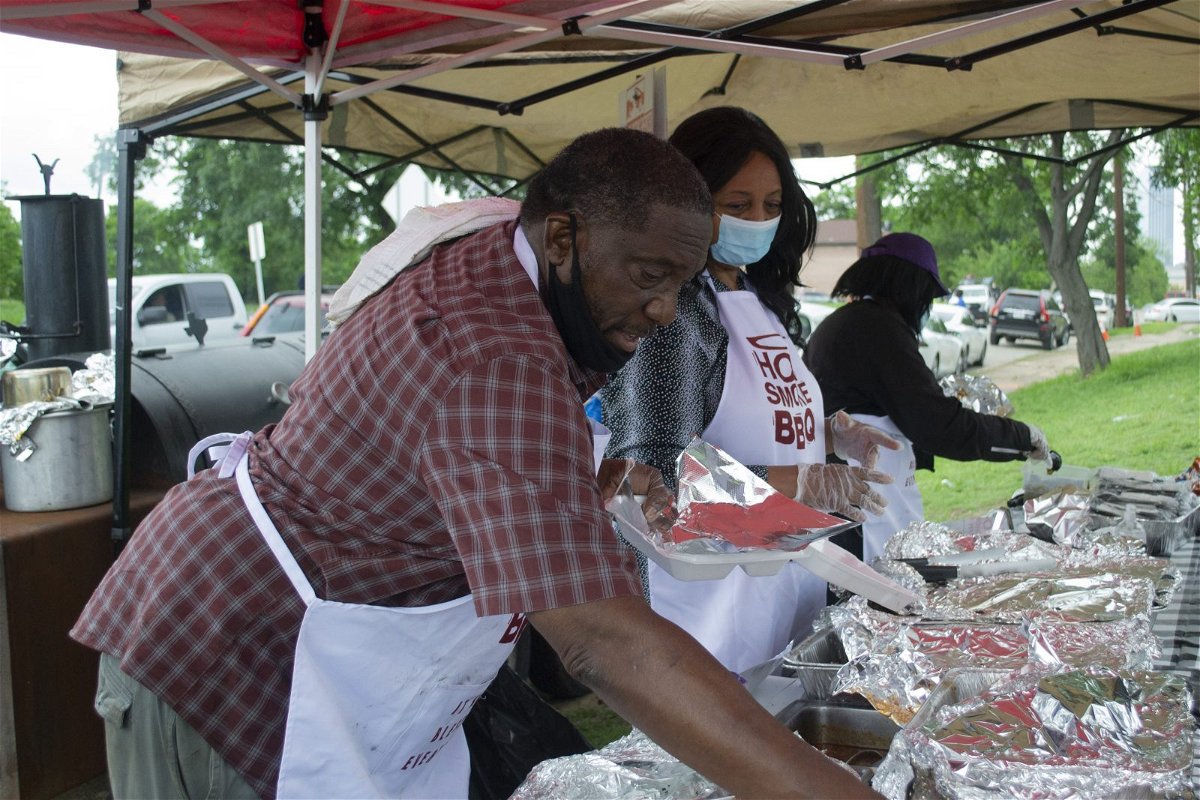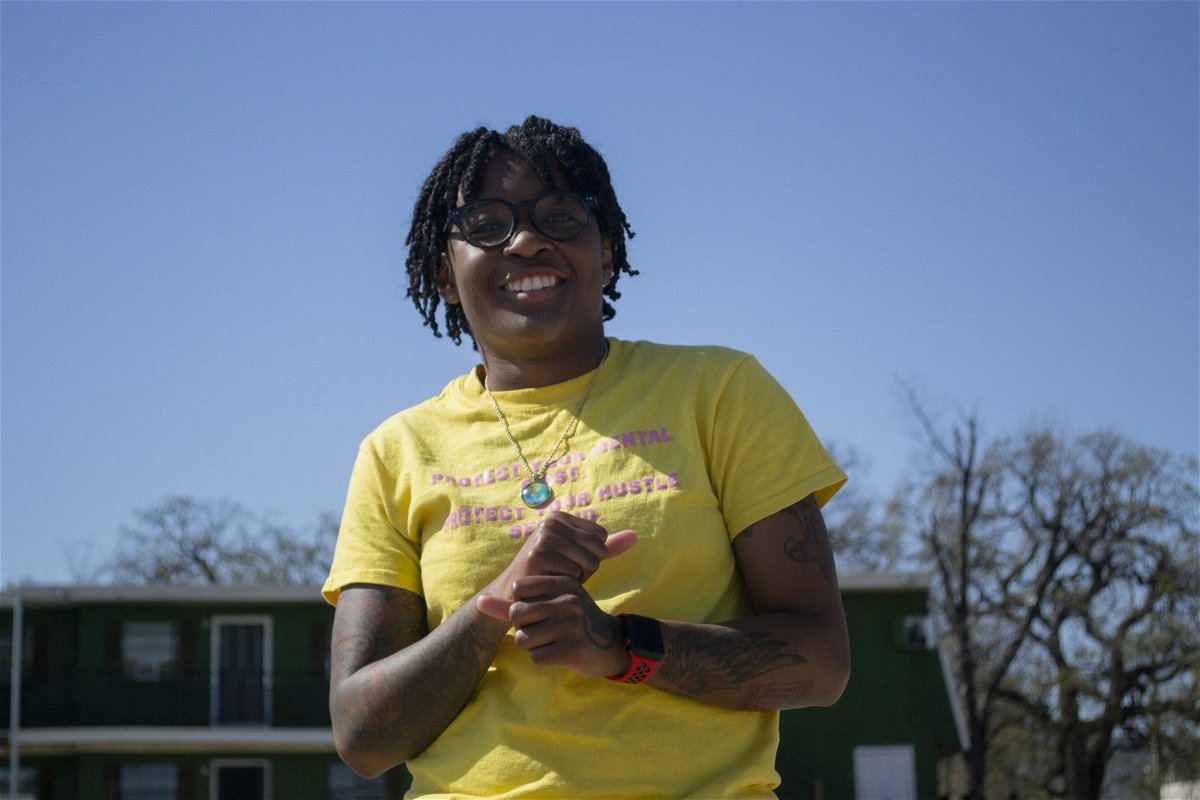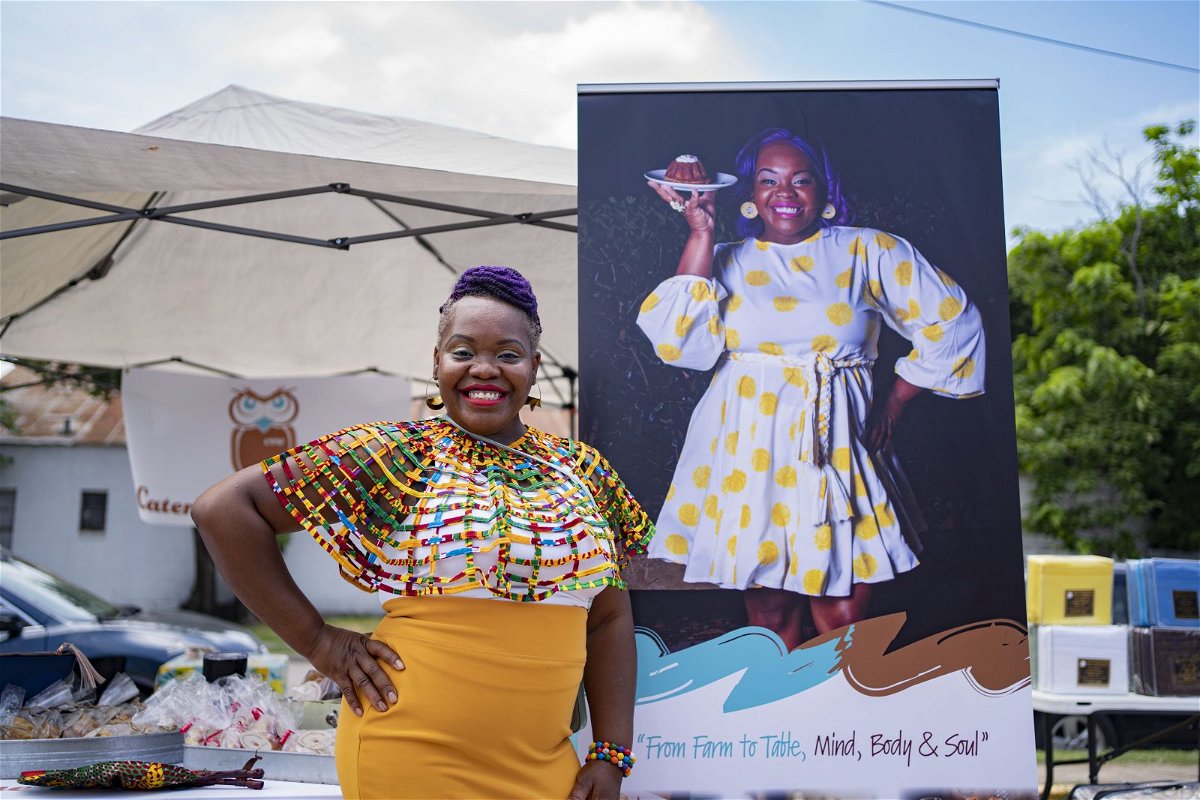Jose Felix of Taste Greengo never expected to see people waiting in line at his healthy pop-up at the MLK Food Park in April. On the menu — a variety of tacos: mahi-mahi, broccolini and fried cauliflower wings.
“We had people coming up to us and telling us our food was the best,” Felix says. “We sold out every day.”
Satisfied customers, however, didn’t equate to financial success. Felix says he broke even between the business costs and fees. The MLK Food Park didn’t charge vendors to participate, but Felix says working with the city of Dallas was difficult, and that city ordinances relating to food trucks and food vendors are not conducive to growing a healthy food business.
“There was a lot of miscommunications between the food inspectors,” Felix says.
For the event, Felix bought new equipment so that he could grill his fish on site, but the city inspector told him that violated Dallas’ city code.
“That was irritating to me,” Felix says. “I wasted a $250 on a piece of equipment that I couldn’t even use.”
Crystal Wood, City of Dallas’ division manager for consumer health, says the city doesn’t restrict a vendor’s menu selection, but chefs face stricter restrictions when they cook with chicken or fish in a mobile food vehicle or on-site at an event.
“They can decide to serve whatever they want — grilled chicken or fried chicken. The only restriction that we have on chicken is that it can’t be raw, and that has to do with the potential for raw chicken juices to cross contaminate other foods that are in that confined space.”
Wood says mobile food units are small, so the amount of space for refrigeration and food storage is limited. “So, that’s the only thing we limit,” Wood says, “If you’re serving chicken [or fish], it has to be what we call ‘freezer to fryer.’ You have to be able to take it out of the freezer and drop it immediately into a fryer.”

MLK Food Park organizers say these rules encourage the kinds of fried delicacies that Dallasites can find en masse at the State Fair of Texas but discourage healthy options like the fish and veggie tacos Felix specializes in. That’s why they created a mobile food task force to examine Dallas’ food policies for special events.
Jason Boso, who owns Dallas’ Truck Yard and sits on the task force, says Dallas’ food truck ordinances are outdated. He points to Austin, San Antonio, Oklahoma City and other major cities that allow vendors to cook fish and chicken on site or in their food trucks.
“You drive around Austin — they have a vibrant food culture and [look] what it’s done for the city. It elevated their entire food scene significantly. Ten years ago, the food there was, you know, tacos and barbecue. Now, there’s Indian and Chinese …”
Boso says Dallas’ rules of preparing raw fish and chicken at an off-site kitchen and transferring it to the food truck creates more health risks than cooking on site, especially since all mobile food units are required to follow all of the same health codes as any brick-and-mortar restaurant. He says today’s mobile food units must have commercial cooking, ventilation, holding and cleaning equipment. In Dallas, Boso says, people visit a place like Klyde Warren Park or the Truck Yard, and then look for a place to eat.
“The food trucks are not the draw [in Dallas]. They’re just an amenity,” Boso says.

Desiree “Dee” Powell, founder of the urban planning firm Do Right by the Streets, partnered with Better Block to host this spring’s MLK Food Park in hopes of creating opportunities for young food entrepreneurs and to bring people from other parts of the city to the South Dallas neighborhood to experience its original cuisine.
“We wanted to show that this can be done in a community that has been disinvested, and it can be done feasibly and affordably,” Powell says. “And, hopefully create something permanent to show this community that they can have just as much as Deep Ellum, Klyde Warren or any other community in Dallas.”
Powell and Better Block says fees topped the list of complaints being addressed by the mobile food task force. Dallas doesn’t have an annual permit for independent food vendors; a special 30-day event like the MLK Food Park meant vendors like Felix had to pay city fees every two weeks, which totaled around $500. To relieve some of the burden on cash-strapped entrepreneurs, Friends of Fair Park donated $10,000 to reimburse vendors for those costs.
In addition to permit costs, some vendors also paid additional fees. If they use propane tanks, for example, that’s another process and fee. Vendors also have to report their sales to the city comptroller and are charged a tax for hot foods.

Like Felix, Shanay Wise, who lives in South Dallas’ Fair Park Estates and owns Catering Done Wisely, received great responses from customers at the MLK Food Park but didn’t make much of a profit. Wise says food park organizers asked her to serve hot, healthy food and provide a vegan option. Her menu included turkey burgers and a taco bar at affordable prices.
“When you sit down at the end of the day and you see the receipts — I had to pay an employee. Did we really make enough for the trouble?” she says. ““For someone like me that gears toward healthy food, that makes it very difficult.”
Wise says paying the city permit fee of $120 for two weeks was one thing, but then being charged $13 a day by the city to be a vendor on days when the food park wasn’t operating didn’t seem fair.
“I know that’s just the norm across the board, but it makes it very difficult to make money as a small business,” she says.
Wise would have avoided the city’s food permit fees if she had sold her pre-packaged food products (pickles, relishes and cakes) and not cooked on the property. She says she may not sell hot foods for the second iteration of the MLK Food Park, which Powell is hosting this coming Sunday, July 11, noon-4 p.m. at 2929 MLK Blvd.
Boso says the language in the city ordinance is confusing, too, and can be a barrier for food entrepreneurs. For example, the city uses the term “motorized food truck” in the city code. While Wood says that food trailers are acceptable, Boso says inspectors in the field often interpret the ordinance differently.
“The problem that that creates is a food truck costs $150,000, a trailer that you can pull behind your own Chevy Ford is maybe $25,000 to $35,000. So, by interpreting the word “motorized” as it has its own motor and can drive itself, creates a giant barrier for entry into the market, right?”
Better Block executive director Krista Nightengale says she’s hoping to get a streamlined version of the rules, regulations and permits from the city. Boso says the task force is presenting its list of recommendations to city leaders this month.
If the city updates its rules for mobile food units, he says, it would change the food landscape in Dallas.
“It won’t happen overnight,” he says, “but within three years you’ll see way more people in the industry. The quality goes up and so does the diversity.”
For Felix, the MLK Food Park experience inspired him to buy a food truck. He hopes to have it up and running later this summer.
“My goal is to have three food trucks around DFW, and then I’m going to open up a fast-food restaurant for healthiness,” Felix says. “I work all day, every day, and it’s so hard to get healthy food.”
Additional reporting by Vivian Berreondo
This story is part of a project on potential solutions to food insecurity in South Dallas and West Dallas. It’s reported through a partnership between Dallas Free Press and The Dallas Morning News, with support from the Solutions Journalism Network. Sujata Dand can be reached at sujata@dallasfreepress.com.

Leave a Reply